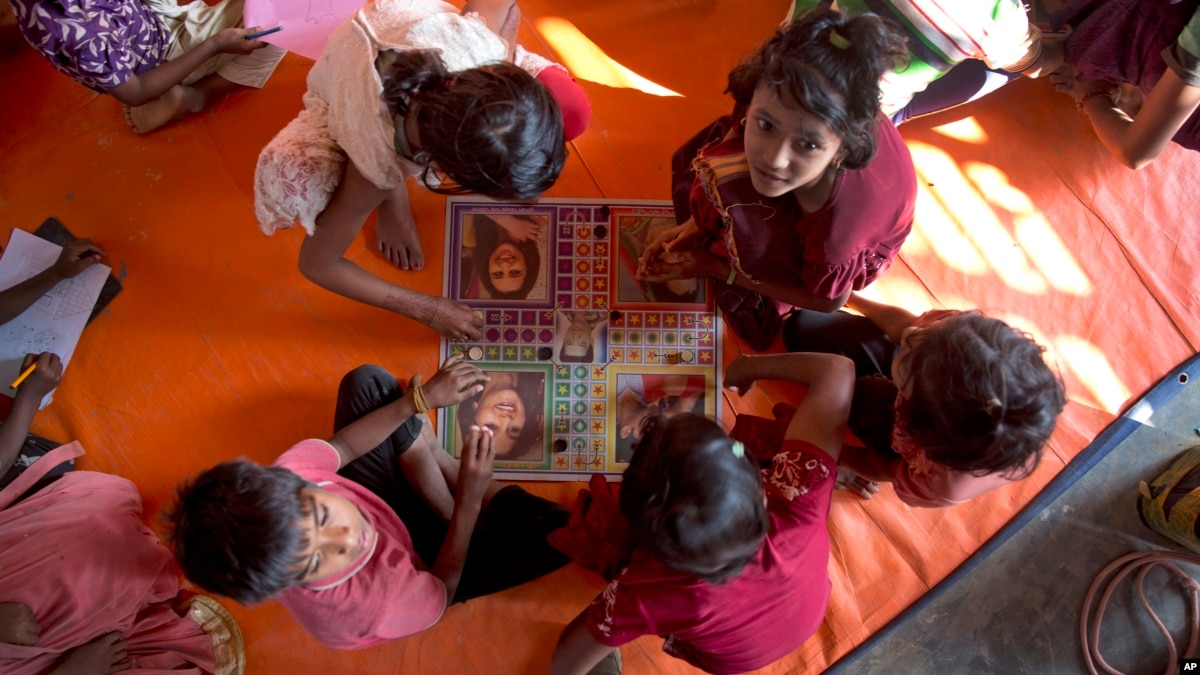
One year after violence and persecution in Myanmar forced the mass exodus of Rohingya refugees, the U.N. Children’s Fund warns of a lost generation of children in Cox’s Bazar, Bangladesh, because they are being denied the education they need to carve out a viable future. The warning comes as UNICEF announced the launch of a study "Futures in the Balance: Building Hope for a Generation of Rohingya Children."
The UNICEF study notes the scenes of chaos and confusion that reigned throughout the cramped, squalid camps in Cox’s Bazar during most of last year are gone. It says improvements in infrastructure and economic activities have been made and it reports major disease outbreaks, such as cholera and widespread damage during the monsoon season, have been averted.
While all this is positive, the U.N. Children’s Fund says the growing despair and hopelessness among Rohingya refugee children is of great concern. The agency reports more than one-half million children have few opportunities to get a proper education to learn the basic skills they need to move through life.
UNICEF senior communications adviser Simon Ingram says 140,000 young children are enrolled in school. But he says very little educational opportunities are available for adolescents, and they are frustrated about their future.
“It is something, which is very clearly dangerous for them, for themselves, for their futures, and for the long-term future of the Rohingya people.... So, we really are talking about a whole generation of Rohingya children whose education, whose hopes of learning the basic skills that they need to make a success of their lives, to achieve anything in their lives and contribute to their community’s future is in jeopardy.”
Ingram says concerns for the children in Cox’s Bazar extend to some 360,000 Rohingya children living a life of desperation and deprivation in Myanmar’s northern Rakhine state.
UNICEF reports it plans to roll out a new learning framework next month in the refugee camps designed to provide children with a higher-quality education. The curriculum will include competence in literacy, language and math, as well as essential life skills.
The first phase of this program will focus on kindergarten and primary school children. UNICEF says it hopes to provide high-grade educational opportunities to secondary school children up to the 8th grade later in the year.

No comments:
Post a Comment